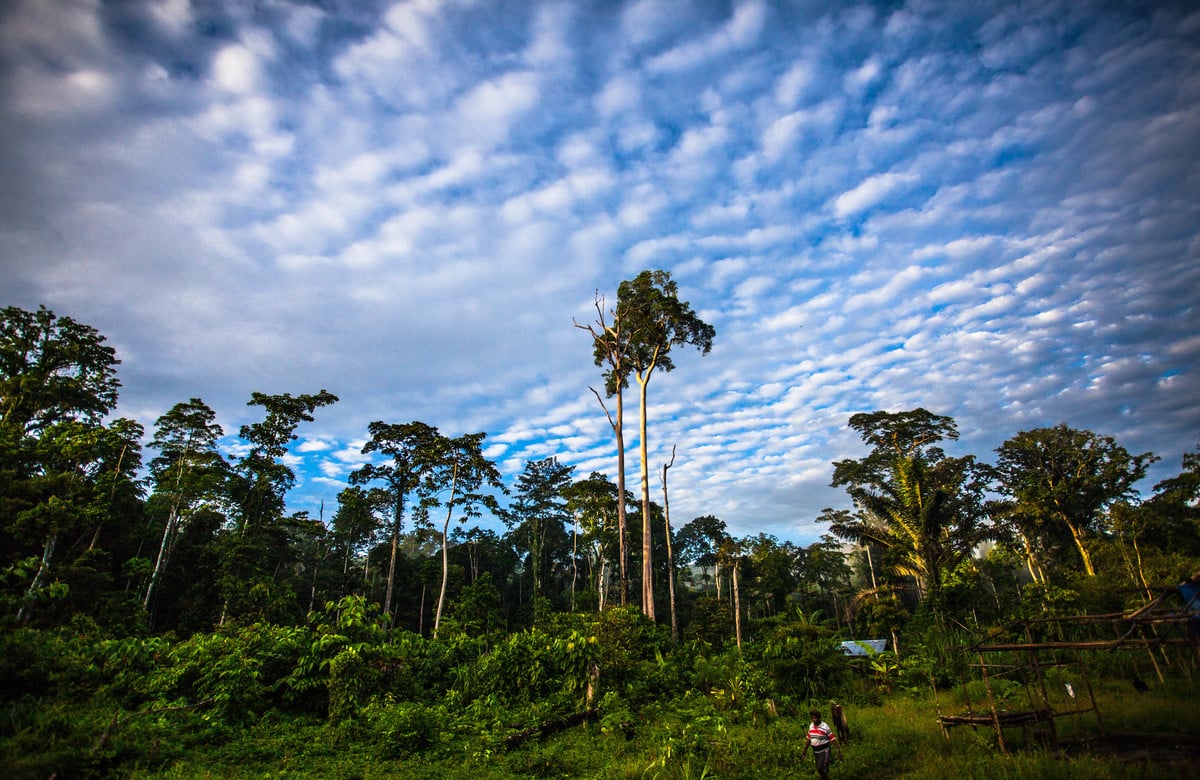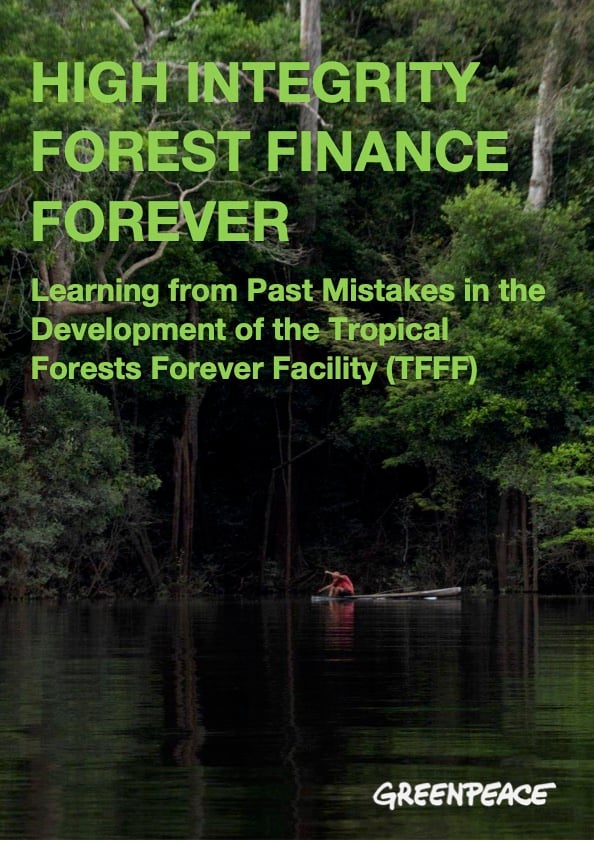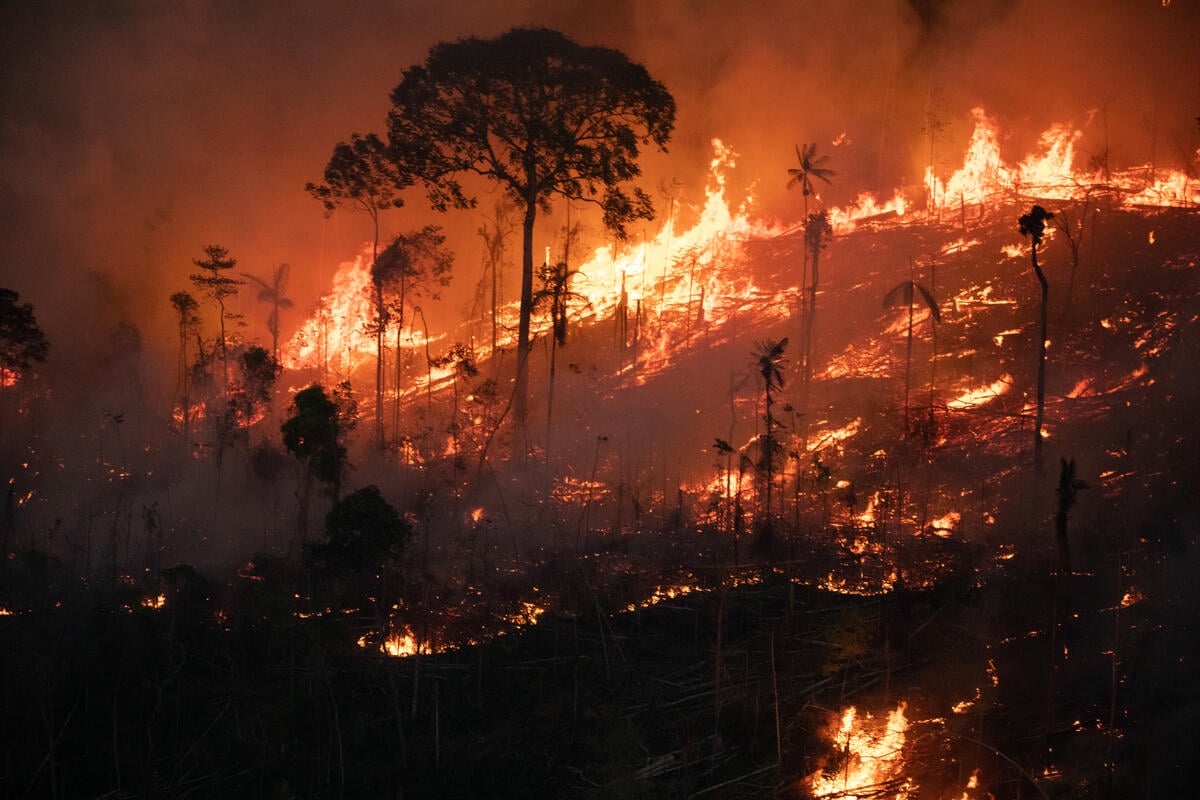It’s been three years since Bolsonaro, the far-right president of Brazil took office. His anti-environmental agenda was never a secret. During his campaign, he promised he wouldn’t recognize any Indigenous Lands during his term, and always made clear his intention to open up the Amazon for more destruction. From a shocking increase in deforestation to the approval of over a thousand new pesticides, here are some of the impacts of Bolsonaro’s government on the environment.
Forest destruction in the Amazon and beyond
During the past three years, there has been a 52.9% increase in deforestation in the Amazon rainforest, compared to the three previous years. Images of the fires have shocked the world and caused an uproar. But it’s not only the Amazon that has been suffering. Other biomes in the country such as the Cerrado and the Pantanal are being pushed to the brink to make way for soy plantations and cattle ranches. The Pantanal, a unique wetland home to jaguars and other endangered species, lost a third of its area in 2020 due to a combination of severe drought and fires set by farmers to expand their business.
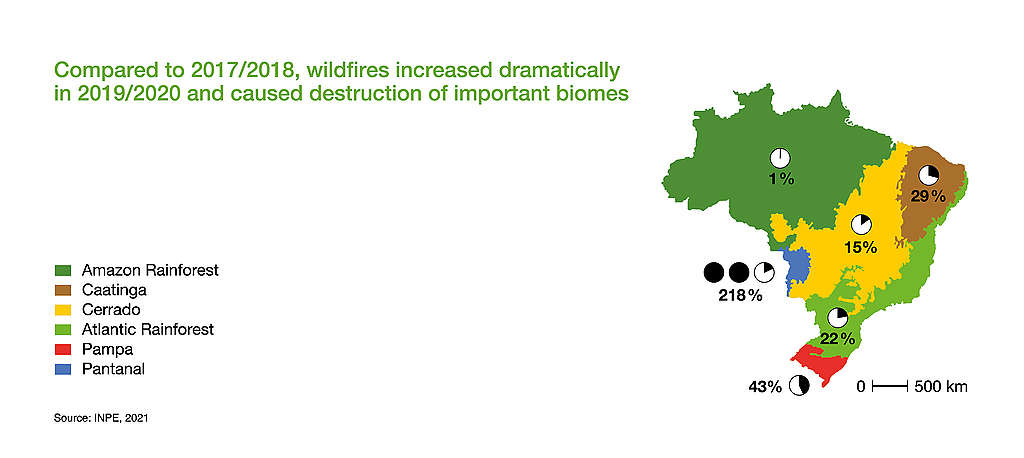
Deforestation across Brazil isn’t just a threat to the country. Brazil has increased its greenhouse gas emissions by 10% due to the fires in the country. According to an analysis by Carbon Brief, Brazil is the 5th highest emitter in the world, mostly due to its land use and forestry. Forests are vital in the fight against the climate crisis. Losing these vital ecosystems means more carbon in the atmosphere and fewer resources to capture what is being emitted.
The dismantling of environmental agencies
To enable all this destruction, Bolsonaro’s administration has been weakening government bodies responsible for monitoring the environment and enforcing laws to protect the forest. IBAMA, a crucial agency responsible for environmental policies in the country, got its funds slashed by 30% from 2019 to 2020, while the budget for the Chico Mendes Institute for the Conservation of Biodiversity (ICMBio) was reduced by 32.7 percent over the same period. In 2021, the Environment Department’s overall budget was at its lowest level since 2010.
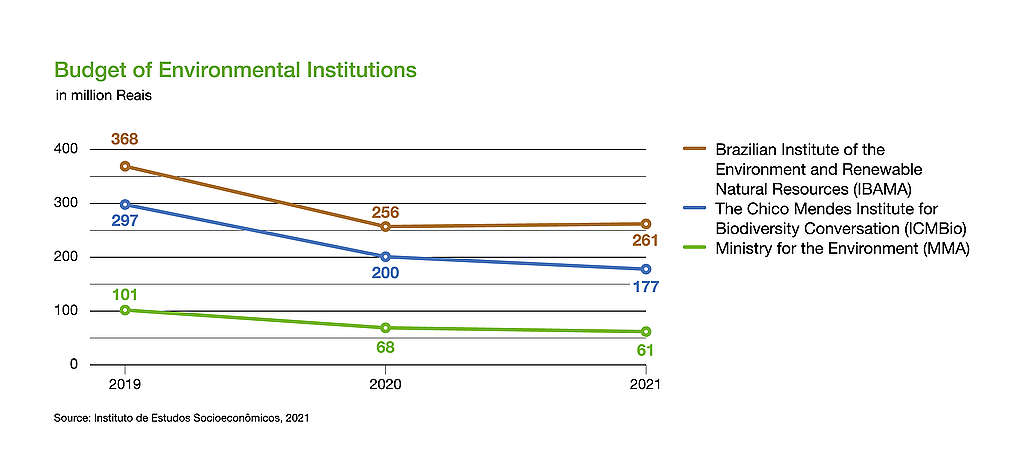
The lack of resources, along with the removal of employees from their jobs – there was a 10% reduction in environment-related staff during Bolsonaro’s administration – has allowed forest destroyers to expand their businesses. Without resources, the environmental agencies don’t have the bandwidth to track environmental crimes and act on them.
Violence in the field
With more destruction of the environment, comes more violence in the field. Loggers, miners, and land-grabbers are constantly invading protected Indigenous lands and engaging in conflicts with them – often lethal. According to the Global Witness report, Brazil was one of the most dangerous countries for environmental activists in 2021, with 20 registered killings. In 2020, 1,576 land conflicts were registered, a new high since 1985. Indigenous Peoples are the most threatened for trying to protect their lands and their rights. Over 41% of the reported conflicts were related to Indigenous communities.
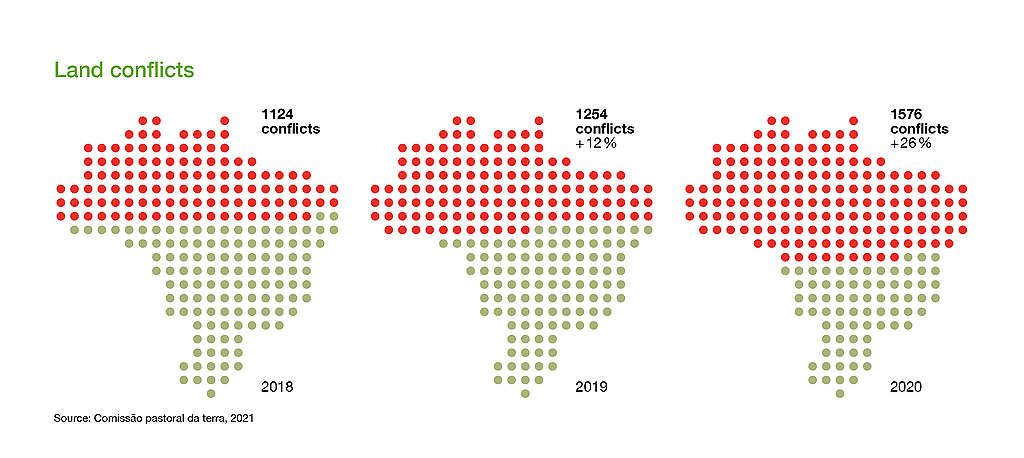
Such violence is also enabled by Bolsonaro’s government. The president described non-governmental organizations (NGOs) as “cancers” for the country and proclaimed that their voice, the voice of civil society, has no meaning for him. In 2019, he accused NGOs of setting the fires in the Amazon themselves.
Threats to biodiversity and to the health of the population
Around 1,500 new pesticides – a new record – have been approved since Bolsonaro took office. Many of the pesticides permitted and used in Brazil contain active ingredients that are not permitted in the EU and are dangerous to human health and the environment. For example, the herbicide atrazine, which has been banned in the EU for more than 15 years due to its hazardous effects on groundwater, can still be found in more than 70 commercial products in Brazil.
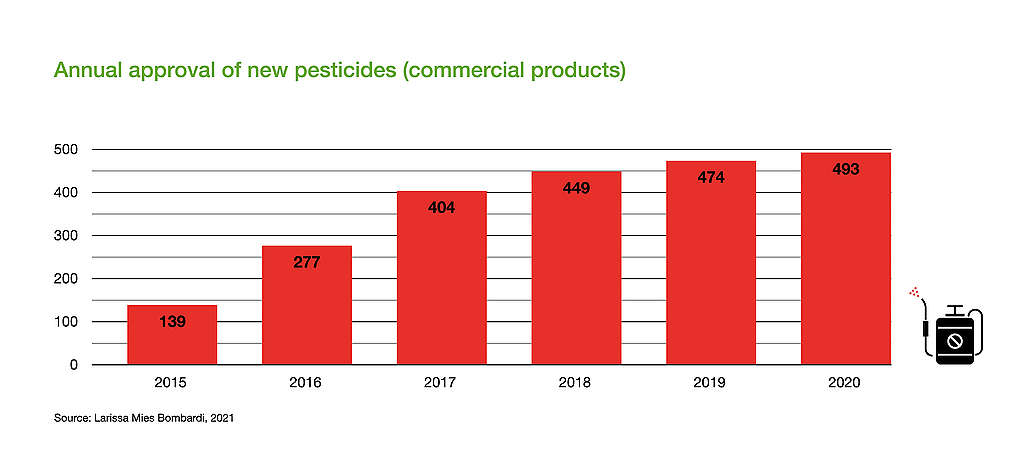
Time for change
Bolsonaro’s term is coming to an end in 2022, but he will be up for reelection. The president hasn’t only been a threat to the environment and to Indigenous Peoples’ rights. His handling of the COVID-19 pandemic has been catastrophic, with Brazil ranking one of the highest in number of cases and deaths. Meanwhile, Bolsonaro has claimed to not be vaccinated against COVID-19 and has actively promoted false treatments such as hydroxychloroquine. The country’s economy has collapsed during his term, leaving millions of people homeless and hungry, while inequality continues to increase.
Brazil has what it takes to be a global leader in environmental protection, with an economy that is sustainable and doesn’t benefit just a few. But for that, we cannot allow Bolsonaro to continue ruling the country. The world has seen what he’s capable of, and the planet cannot afford four more years of an anti-science, anti-environment, anti-human rights leader.

